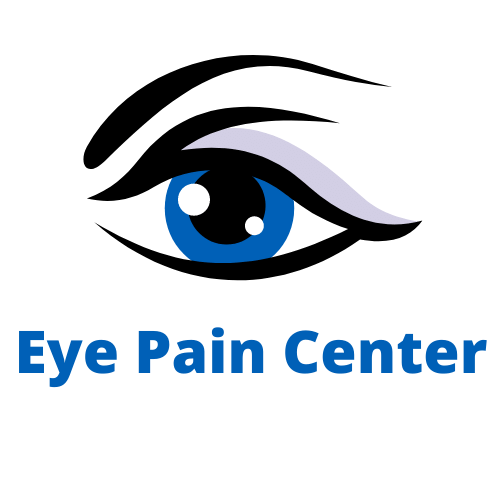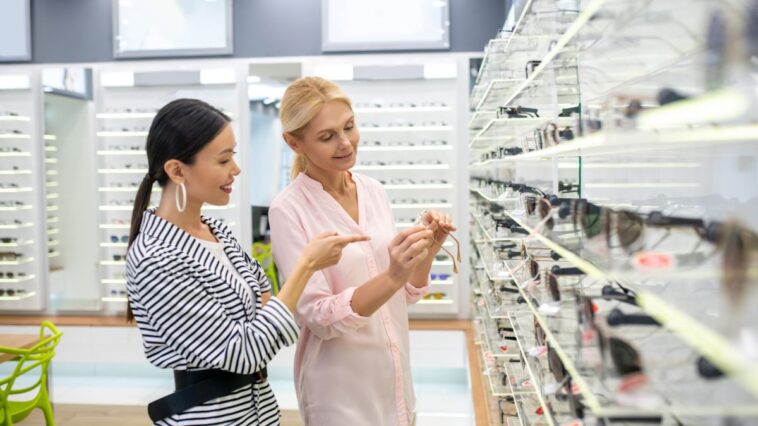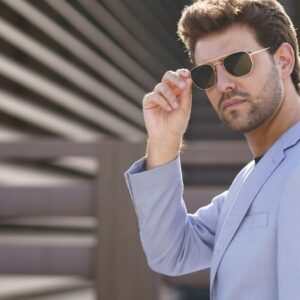Ultraviolet (UV) Rays and Their Dangers.
Ultraviolet (UV) rays are a type of electromagnetic radiation that comes from the sun. They are divided into three categories: UVA, UVB, and UVC. UVA rays are the longest and can penetrate deep into the skin, causing aging and wrinkles. UVB rays are shorter and are the primary cause of sunburn.
UVC rays are the shortest and are mostly absorbed by the ozone layer, so they do not reach the Earth’s surface. Excessive exposure to UV rays can lead to skin cancer, sunburn, and other skin damage, as well as cataracts and other eye damage.
Protecting yourself from UV rays is essential by using sunscreen, wearing protective clothing, and avoiding prolonged exposure to the sun during peak hours.
What Does UV Mean in Sunglasses?
UV stands for ultraviolet. Sunglasses with UV protection are designed to block out ultraviolet radiation from the sun, which can be harmful to the eyes. UV rays can cause damage to the cornea and retina, leading to conditions such as cataracts and age-related macular degeneration.
It is vital to wear sunglasses with UV protection when spending time outdoors to help protect your eyes from these harmful rays.
Benefits of UV Protection On Sunglasses
Wearing sunglasses with UV protection offers several benefits, including:
- Protection for the eyes: UV radiation can damage the eyes and lead to cataracts, age-related macular degeneration, and even skin cancer around the eyelids. Wearing sunglasses with UV protection can help protect the eyes from these harmful effects.
- Reduced glare: Many UV protection sunglasses also feature polarized lenses, which can reduce glare and improve color contrast. This can be especially beneficial for people who spend much time on the water or around snow, as the glare can be intense.
- Better visibility: UV protection sunglasses can enhance visual acuity and clarity, particularly in bright light conditions.
- Protection for the surrounding skin: Sunglasses with larger lenses and wraparound frames can provide more coverage and protection for the skin around the eyes, which can be especially helpful for people who are sensitive to sun exposure.
- Fashionable accessory: UV protection sunglasses come in a wide range of styles, colors, and designs and can be worn as a fashionable accessory.
- Protection for the whole day: Sunglasses with UV protection can be worn throughout the day, not just when the sun is at its strongest, providing protection all day long.
- Protection for the whole year: UV rays are present all year round, even on cloudy days and during the winter, so wearing UV protection sunglasses can help protect your eyes from harmful UV rays all year round.
Overall, wearing UV protection sunglasses is essential in protecting your eyes and surrounding skin from UV radiation’s harmful effects and can help maintain good eye health in the long term.
How UV Protection Blocks Harmful Rays?
UV protection, such as sunscreen and clothing, works by absorbing, reflecting, or scattering UV rays before they can reach the skin.
Sunscreen contains ingredients that absorb UV rays, such as avobenzone, oxybenzone, and titanium dioxide. These ingredients create a chemical reaction on the skin that absorbs the UV radiation and prevents it from penetrating the skin.
Clothing can also provide UV protection by blocking or scattering the rays. Some clothing, such as swimwear and sportswear, is specifically designed with UV protection in mind and is made from fabrics with a tight weave that blocks out more UV radiation. Other fabrics, such as cotton, linen, and rayon, are less protective and allow UV rays to pass through the fabric.
Some hats, such as wide-brimmed hats, can protect the face and ears from UV rays, while sunglasses protect the eyes from harmful UV rays.
It is important to note that while UV-protective clothing and sunscreen are essential, they are not foolproof, and one should also limit exposure to the sun, especially during peak hours when the sun is strongest.
Factors to Consider When Purchasing UV Protective Sunglasses
When purchasing UV-protective sunglasses, it’s essential to consider several factors to ensure that they provide adequate protection and meet your individual needs. Some of these factors include:
- UV protection: Make sure the sunglasses provide 100% UV protection or UV400 protection, which means that they block all UVA and UVB rays up to 400 nanometers. Look for a label or sticker indicating the level of UV protection, or check if the sunglasses meet standards set by organizations such as the American National Standards Institute (ANSI) or the International Organization for Standardization (ISO).
- Lens material: Different lens materials can provide varying levels of UV protection. Glass and polycarbonate lenses typically provide the highest level of UV protection. In contrast, CR-39 and acrylic lenses provide less protection.
- Coatings: Some coatings can enhance the UV protection of the lens, such as UV coatings, polarized coatings, and anti-reflective coatings.
- Frame style and fit: Consider the frame style and fit, as well as how much coverage and protection they provide for the eyes and surrounding skin. Wraparound frames and larger lenses can provide more coverage and protection.
- Purpose: If you engage in activities requiring polarized lenses, such as water sports, make sure the sunglasses have polarized lenses.
- Prescription: If you need prescription sunglasses, ensure they provide UV protection and have the appropriate prescription lenses.
- Brand reputation: Look for reputable brands that produce high-quality, UV-protective sunglasses.
It is important to remember that the sunglasses’ color, darkness, or price is not a guarantee of UV protection. Before buying, check for the UV protection label or sticker.
Can I Damage My Eyes if I wear Sunglasses without UV Protection?
You can damage your eyes if you wear sunglasses without UV protection. UV radiation is present in sunlight, and it can cause damage to the eyes over time, even on cloudy days. UV radiation can cause cataracts, age-related macular degeneration, and even skin cancer around the eyelids.
Wearing sunglasses without UV protection can give a false sense of security, as they can block the glare of the sun but not the UV rays. This is why it is vital to ensure that your sunglasses provide 100% UV protection or UV400 protection, which means that they block all UVA and UVB rays up to 400 nanometers. This can dilate pupils and allow more UV rays to reach the eyes.
It is important to remember that the sunglasses’ color, darkness, or price is not a guarantee of UV protection. Before buying, check for the UV protection label or sticker.
Can You Wear UV Glasses all Day?
Yes, you can wear UV-protective glasses all day. It is recommended to wear sunglasses that provide UV protection whenever you are outside during the day, as UV radiation can cause damage to the eyes even on cloudy or overcast days.
Wearing UV protective glasses all day can help to protect your eyes from the harmful effects of UV radiation and can also help to reduce glare and eye strain. However, it’s important to ensure that your sunglasses are comfortable and fit well so that you can wear them for extended periods without discomfort.
Conclusion
In conclusion, UV protection is an essential factor to consider when purchasing sunglasses. UV radiation can cause damage to the eyes and can lead to conditions such as cataracts and macular degeneration.
Sunglasses with UV protection can help to protect the eyes from this damage. It is essential to look for sunglasses with a UV protection rating of at least 99% and to ensure that the sunglasses fit well and provide coverage for the entire eye area.






